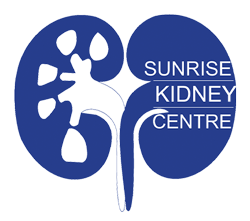Poison Kidney failure treatment in Vijayawada
Poisoning occurs when harmful substances interfere with the body's normal biological processes, causing detrimental health effects. These toxins can enter the body through various pathways, including swallowing contaminated food or chemicals, inhaling toxic fumes, skin absorption, or via injection. Once inside, they can disrupt cellular activities, damage organs, or upset chemical balances, with the severity influenced by the type, dose, exposure duration, and individual health factors. Common sources encompass household cleaning agents, medications, certain plants and foods, and industrial chemicals. Recognizing symptoms like nausea, difficulty breathing, confusion, or vomiting early is vital for timely poison kidney failure treatment in Vijayawada, which may involve removing the toxin, administering specific antidotes, or providing supportive therapies to maintain vital functions and minimize damage.
Effect of poisoning on kidneys.

Poisoning poses a serious threat to kidney health, as the kidneys play a crucial role in filtering waste and balancing bodily fluids and electrolytes. Exposure to harmful substances such as heavy metals (like lead and mercury), certain medications (notably NSAIDs), and environmental toxins (such as ethylene glycol) can induce acute or chronic kidney damage, leading to inflammation, impaired filtration, and toxin buildup in the bloodstream. Symptoms may include decreased urine output, swelling from fluid retention, electrolyte disturbances, and elevated blood pressure, with severe cases causing tubular necrosis and irreversible damage. Chronic exposure increases the risk of progressing to end-stage renal disease, necessitating dialysis or transplant. Early detection and best treatment for kidney failure in Vijayawada are vital to prevent lasting harm, emphasizing the need for public awareness and education about the risks associated with toxic exposures and kidney health preservation.
Kidney health management post poisoning.
Effective prevention of kidney damage following poisoning hinges on prompt medical intervention, which varies depending on the toxin involved and the severity of exposure; immediate actions such as administering antidotes, activated charcoal, or other detoxification methods are vital to minimize renal injury. Ensuring adequate hydration is crucial, as it aids in diluting and flushing out toxins from the kidneys, while regular monitoring of renal function allows for early detection of any damage. Adopting a healthy lifestyle—balanced nutrition, avoiding nephrotoxic substances, and consulting best nephrology doctors in Vijayawada — can further bolster kidney resilience after poisoning incidents. Though complete prevention isn't always possible, swift, appropriate medical care combined with supportive measures and lifestyle modifications significantly reduces the risk of long-term renal complications.
Symptoms associated with kidney disease because of poisoning.
Kidney disease resulting from poisoning often presents with a range of symptoms that can be subtle initially but become more pronounced as damage progresses. Early signs may include fatigue, weakness, and a decreased ability to concentrate, stemming from the accumulation of toxins and waste products in the body. Patients might experience swelling or edema, especially around the eyes, ankles, and feet, due to fluid retention caused by impaired kidney function. Changes in urine output are common, with some individuals noticing foamy urine, darkening, or even a decrease in frequency. Nausea, vomiting, and loss of appetite can occur as toxins build up in the bloodstream. Additionally, poisoning-induced kidney damage can cause abnormal heart rhythms and high blood pressure, as electrolyte imbalances develop. In severe cases, symptoms escalate to confusion, shortness of breath, and in advanced stages, signs of uremia such as metallic taste, itching, and dry skin. The presence of unusual odors in the breath, persistent muscle cramps, and unexplained anemia may also be indicative of kidney impairment due to toxic exposure. Recognizing these symptoms early is crucial for timely intervention by a nephrology specialist in Vijayawada and to prevent irreversible kidney damage.
If you suspect kidney damage from poisoning, visit Sunrise Kidney Centre and schedule an appointment with Dr. M.V. Sai Krishna for a comprehensive evaluation and personalized prevention strategies to protect your kidney health.

